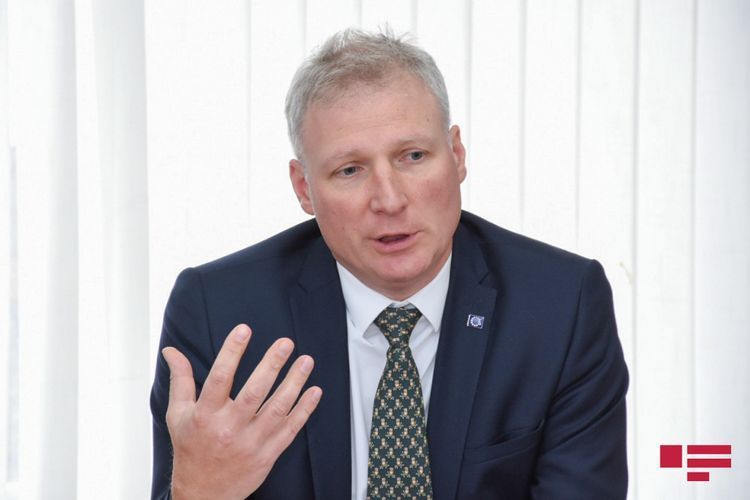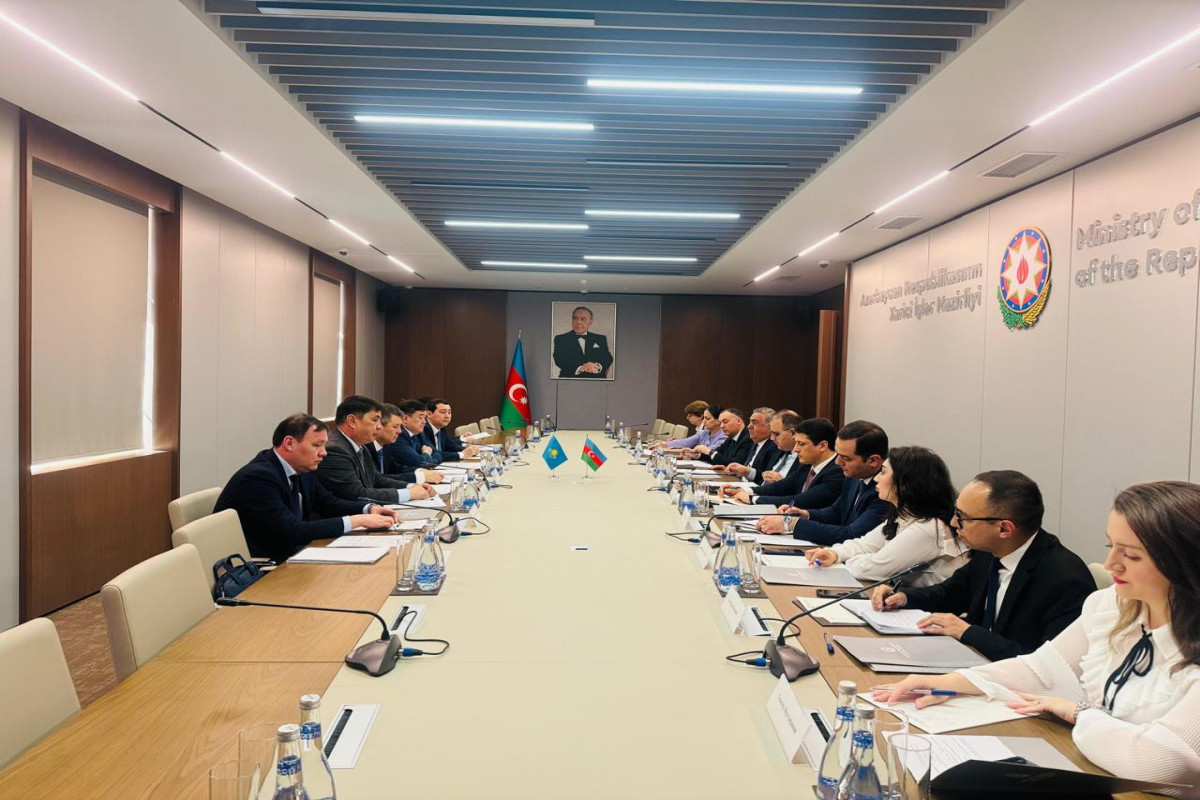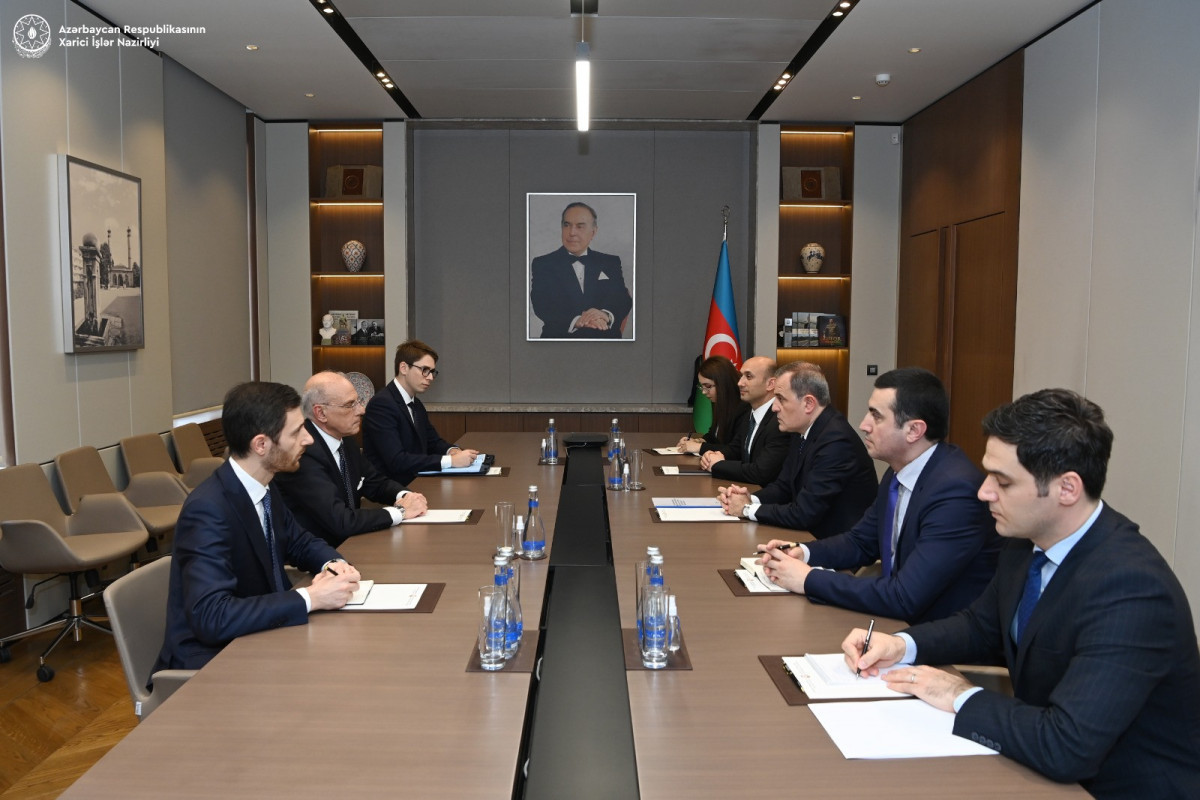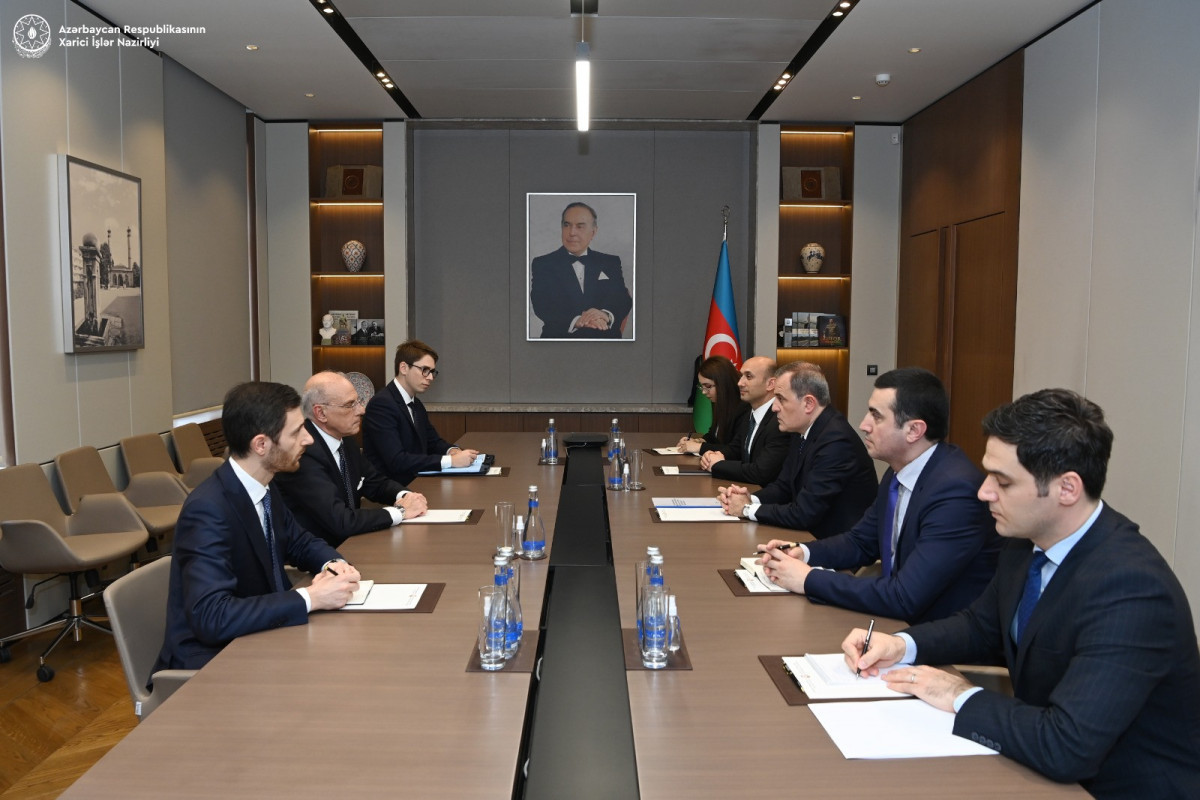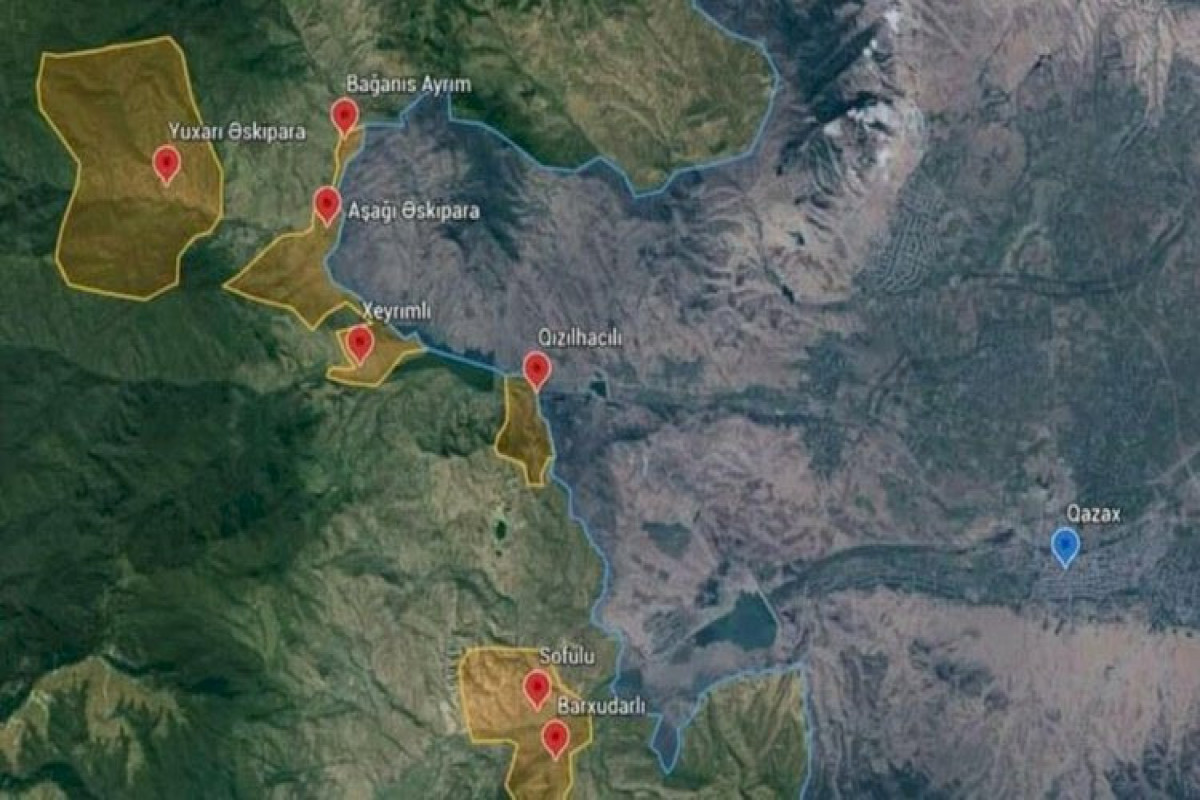Interview of the head of EU (European Union) Delegation in Azerbaijan, Ambassador Kestutis Jankauskas to APA News Agency
– Mr. Ambassador, my first question is about the recent virtual meeting of EU leaders and EaP leaders. With the participation of EaP Foreign Ministers and then heads of states and governments the teleconference has been held. What are the main takeaways from this conference?
–Main takeaway – Eastern Partnership remains an important priority for the European Union. EaP countries are our immediate neighbors and we want to work together to build security stability and resilience.
Since this year's full-fledged live “Summit” was not possible because of the pandemic, it was agreed to have the next Eastern Partnership Summit in March 2021 live and to adopt a declaration on that occasion.
Our leaders tasked the preparation of new deliverables which will be adopted in March 2021 and which will guide our partnership and cooperation for several years to come. We already started working on that.
–Since last year we hear that the Partnership Agreement between the EU and Azerbaijan is almost done, 90 percent agreed but negotiations on the final partnership agreement are yet to be completed. What is the latest situation on this matter?
–Last round of consultation how to finalize our negotiations on the new Partnership agreement took place in December 2019, shortly after the appointment of H.E. M.Jabbarov as Minister of Economy. At the beginning of this year, Azerbaijan appointed a new negotiator on remaining trade issues. Unfortunately, coronavirus pandemic introduced new urgent priorities for the Ministry of Economy and impeded possibility of having larger live coordination and preparation meetings as well as traveling. As our countries are reemerging from the virus pandemic, the preparatory work continues and I expect the next round of consultations or negotiations to take place soon.
–Recently in a press conference where EU Commissioner Mr. Varheyli and High Representative Mr. Borrell attended, EU Commissioner has mentioned the aviation sector. Could you, please, more elaborate on that?
–Yes. On top of the ongoing negotiations of the new framework Partnership agreement, we also have a draft of the Aviation agreement between Azerbaijan and the European Union. We have been working on it since 2013.
While many borders remain closed and air travel is down, at first sight, it might be strange to talk about the aviation agreement. Actually, when you think deeper, this agreement might be very useful, especially now, in the post-pandemic period. Why?
First of all the pandemic has affected our lifestyle and the economy. When we trying to rebuild it, we may want to rebuild it better than it was. This agreement offers Azerbaijan to join the European aviation area providing the best quality and standards. In all the countries which signed similar agreements so far the number of direct air connections grew, the number of passengers increased and the ticket prices went down. Is it not what Azerbaijan needs to facilitate the fastest possible recovery severely affected the hospitality business, to bring more European tourists for the regions, help family business and SMEs to revive after the pandemic?
It should also be noted that the agreement did not negatively affect the functioning of the national carriers in those countries which signed similar agreements earlier, quite the contrary, it helped them to work more effectively and efficiently.
–It is claimed that compared with the early years when EaP launched in 2009, now EU relations with its eastern partners have become increasingly geopoliticised. Might this lead the EU to lower its transformative ambitions even further?
–The idea behind the Eastern Partnership was always clear and simple: the six partner countries are neighbors of the European Union; we can’t imagine genuine security, stability, and prosperity in the EU without our immediate neighbors also being secure, stable and prosperous. EaP provides a unique framework to focus our attention and resources. During the last ten years, this framework has substantially grown, strengthened, and expanded.
For the partner countries, EaP is wide, flexible, and inclusive enough to accommodate their different ambitions and national priorities. Each country can choose the activities that best correspond to their national interests and political ambitions. Even the three who have signed Association agreements have not fully exhausted the practical utility and transformation potential of the Eastern Partnership. We truly believe in every country’s right to freely choose its priorities and arrangements.
I think it is fair to assume that in the years to come the European Union will focus more, not less, on the impact in its immediate neighborhood by offering transformative possibilities and enabling the free choices for our neighbors and the Eastern Partnership is main enabling platform.
–Beyond 2020 may we expect that the EU will focus more on supporting the strengthening of these countries in matters of defense and security?
Since the Summer of 2019 in close cooperation with six partners our leaders have agreed on five priorities for our partnership for years to come:
-economy that creates jobs, particularly for young people;
-partnership that empowers through good governance, democratic institutions, human rights, gender equality, rule of law;
-connectivity, particularly through digital transformation;
-sustainability, climate change, green transformation;
-continuous delivery of tangible results to our citizens through best practices and innovations.
In all of these priorities, you can trace something that we call “strengthening of resilience”. These days defense and security has grown well beyond purely military understanding. It encompasses building the system, the governance model, empowering society that could withstand a variety of modern threats to our countries. In this respect, the Eastern Partnership offers a lot.
It should also be noticed that over years Common Security and Defense the policy of the European Union also keeps rapidly developing, so accordingly we can offer more to our partners. With Azerbaijan, we have started regular and successful Security dialogues which help to exchange information and identify priorities for further cooperation.
–We know that from the beginning “Eastern Partnership” policy of the EU was not welcomed by Kremlin. Can the development of cooperation with the EaP countries be harmed by the unwillingness of some EU countries (like France, Italy) which do not want worsening relations with Russia?
–First, let the Kremlin comment on its own stance and views.
As for the EU, the Eastern Partnership as you see now, all that happened for the last ten-eleven years is the result of an agreed and united policy of the European Union, fully driven, endorsed, and supported by all of the members states.
In Europe, we truly believe in the right of each country to choose its own future. The Eastern Partnership is not directed against anyone. It is a cooperation program offering development and better future choices to our partners and neighbors.
–Instability in the South Caucasus is a threat to European Union security. Yet, in fact, the unresolved Nagorno-Karabakh, Abkhazian, and South Ossetian conflicts have the potential to ignite into full-fledged wars in Europe’s neighborhood. What do you think, to guarantee its own security, should not the EU become more engaged in efforts to resolve these disputes, increase its political visibility?
–Indeed, instability in our neighborhood is a potential threat. These conflicts are not on in the South Caucasus. They also exist in Moldova and Ukraine. Each of these conflicts has its own history, dynamic (or lack of it) and a separate format of dealing with it. Historically, the European Union plays different roles in the existing settlement mechanisms. In cases where the EU does not have a direct role in agreed settlement mechanisms, we are trying to be helpful in supporting the facilitators and provide a variety of programs, which facilitate stability, engagement, and dialogue. We do that because we want the conflicts to be resolved as soon as possible, and the zone of security and stability to grow.
We are ready to consider further ways of engagement that would be desirable by parties involved in these conflicts.
–In these days the world is struggling with COVID-19 pandemic, EU officials highlight in their statements that this crisis requires a global response, solidarity. And we know that to deal with the consequences of the COVID-19 pandemic crisis, the EU has mobilized financial assistance to different countries including Azerbaijan. My question is that is there any mechanism to monitor that financial aid is going to be spent appropriately?
–All the financial assistance delivered by the European Union is administered by EU rules and standards and is subject to internal and external audit controls of the EU. They are principled and strict. The checks are based on the risk analysis, they are frequent, regular. The results are public. In other words, the EU assistance comes with European standards of delivery and implementation. If there are any suspicions, they should be immediately reported and will be followed-up. I sincerely encourage everybody to do so.
The region, traditionally a disinformation battleground, has been recently a target of COVID-19 “infodemic” conspiracy theories. How can the EU assist these countries to fight disinformation in the region?
Not only this region is exposed to the disinformation: we all are. Current digital and mobile networks, the Internet and social media platforms are very useful for obtaining information, but they are vulnerable to various manipulations and malpractices.
First of all, there is no better way to ensure the availability of genuine information than freedom of media, despite the existing vulnerabilities.
Secondly, the EU and its member states have invested a lot over recent years in strategic communication, the resilience of its media resources, and the checking of facts. It is a living process but I encourage everybody to join our efforts and help us to spot, report, and correct misinformation. And always check the sources of the information that you use.
–This pandemic crisis badly affected Europe. Some, in particular, far-right forces claim that the EU could not show its solidarity, unity what the EU is always proud of. Will this crisis have implications on the EU in terms of a decrease of confidence, trust among people towards the bloc? And the EU Member States have not agreed on the Recovery Plan, yet. Physical meetings in Brussels on this issue will be held on 17-18 July. What do you think, will they finally agree?
–It might be repetitive to use the term ”unprecedented” to describe this crisis all economies are facing because of the ongoing pandemic, but that’s the most accurate description of it. While most countries try to compensate economic losses with targeted subsidies using financial cushions or are reverting to international credit facilities, the European Union for the first time has proposed an extremely ambitious response, which would include grants and credits to the economies of its member states, in particular the worst hit.
The ambition of the EU response has raised many eyebrows and generated vivid discussions in some countries. Initial discussions at the European Council have allowed various opinions to be registered and some misunderstandings eliminated. The German Presidency of the Council of the European Union is preparing the ground for a thorough discussion at the next European Council with a view to an agreement that would include the adoption of new financial perspectives (EU budget) for seven years to come.
All EU MS are now aware of what is at stake in these discussions: European economies are closely interlinked. A common European response is vital for the recovery of the European economy as a whole. I am confident that the leaders will also register the mood of Europeans, who, in a recent poll conducted in nine EU countries, asked for a greater role for Europe in areas related to health and economic recovery. Interestingly, in the member states worst hit by the pandemic, such as Italy or Spain, this poll revealed that the overwhelming majority of the population (80-90%) favor more “Europe”, not less.


